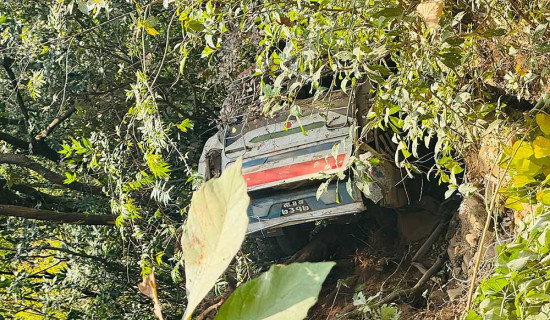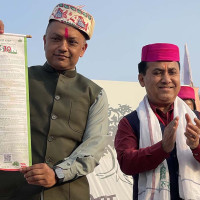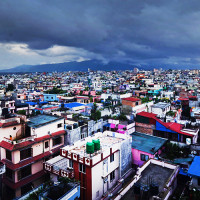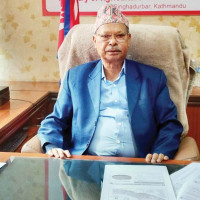- Thursday, 19 February 2026
Call For Novel Development Model
Generation Z, often shortened to Gen Z and informally known as zoomers, is the demographic cohort succeeding Millennials and preceding Generation Alpha, according to Wikipedia. Researchers and popular media use the mid-to-late 1990s as starting birth years and the early 2010s as ending birth years, with the generation loosely being defined as people born from 1997 to 2012. It has been noted that most members of Generation Z are the children of Generation X and it is expected that many will be the parents of the proposed Generation Beta. Generation Z spent their formative years in a digital-first world where smartphones, social media, and instant communication have dominated their everyday life.
It is high time to better understand the Gen Z group. They are more affected by digital technology than social and natural touch, like the earlier generations. Their access to information and knowledge is global, and their mind are fast to grab the data. Although their analytical faculty is not fully developed, their heart and soul are pure and non-polluted. Their personality is a mixture of family, social and global values. Sometimes their thinking and behaviours are hard to understand and tolerate by their parents and guardians. They are non-conventional and uncomfortable to remain within a narrow boundary in terms of values. They are straightforward and want unconvoluted behaviours from others. They expect transparency, equality, justice in public service delivery and faster development outcomes from the government. They are comparatively more aware of their rights than their duties.
Powerful force
Oftentimes, the fact is more important to them than the truth. They may sometimes underestimate the struggles of their earlier generations. This makes them a powerful force in the family, workplace, society and politics. The capacity of the earlier generations may not be sufficient to deliver their expectations. This is what we have seen recently in Nepal and elsewhere in the form of a youth movement that threw away the sitting governments. Nepal’s recent two-day movement caused economic loss worth Rs. 200 billion. This makes it an urgent task to consider and address their demands and deliver their expectations.
Gen Z needs three things without any compromise. First, they want quality education for all. They not only want to enhance the quality of education in public schools and universities, but they also like to dismantle the existing education divide based on the income level of family. Public educational institutions have become poor learning places and policymakers have nearly failed to improve the quality there. Political parties have turned these places into their playgrounds by injecting their sister organisations in the name of student and teachers’ organisations. Ending such politicisation is a precondition for quality education as desired by Gen Z, who have to compete globally to survive and thrive.
A bitter truth about our education is that we have collectively failed to produce manpower that meets the expectations of the labour market. This has shattered the dreams of many youth turning to the movement. Second, Gen Z needs decent employment opportunities. Every year, about half a million people enter Nepal’s labour market. But only a hundred thousand youth get some type of employment within the country. For the rest, they have either to remain unemployed and become prey of political parties or go out of the country for foreign employment.
Unfortunately, both these jobs are hardly decent, which makes the youth unsatisfied with the way of government. While most of the Gen Z are aware of employment opportunities globally, they want an end to forced labour migration due to a lack of employment opportunities at home. Many Gen Zeers also aspire to serve the country. While Nepal has huge potential to create good jobs, vested sectoral policies have forced our industrial and agricultural sectors to men weak or virtually collapse.
These policies have largely failed to articulate economic nationalism, as many countries have done cleverly even under the rhetoric of globalisation and liberalisation. Consequently, foreign goods have occupied our markets and seriously discouraged our domestic producers. Rent-seeking has further disincentivised the domestic entrepreneurs. By overcoming these barriers, there is an urgent need to create massive good good-quality employment opportunities if the government has to survive the Gen Z attacks. This is indeed a do-or-die issue.
Third, Gen Z wants good governance. There are close interactions among quality education, decent employment and good governance. Good governance is an all-encompassing concept similar to Ram-Rajjya (an ideal state of Lord Ram), where all dimensions of society are neat, clean and oriented to serve the principle, the people. Complaint-free governance is good governance. Unfortunately, Nepal’s governance system is riddled with so many complaints despite changes in the political system in the country. Almost everyone in the country is unsatisfied with the system as it compromises transparency, accountability, integrity and pro-people orientation.
Good governance
While earlier generations tolerated this all due to their inability to fight against it, the young generation is uncompromising in the full-circle application of good governance. There is an urgent need for a 360-degree transformation on the part of the government and its actors to ensure this. To conclude, Gen Z is around, shaking things up across the cultural, social, political and economic landscapes around the globe. Nepal’s recent youth movement is a good example.
The young generation has grown up with advanced technology, which has enabled them to be better aware and capable of understanding the factors that affect their lives than their earlier generations. It is urgent to understand their uncompromising bottom line: quality education, decent jobs and good governance. Nepali government actors at all levels must readdress them with urgency. For this, conventional mentality and action need to be thoroughly replaced by a fresh and transformative development model. Any delay in delivering this is going to be hugely costly.
(The author is a development expert)









-original-thumb.jpg)






